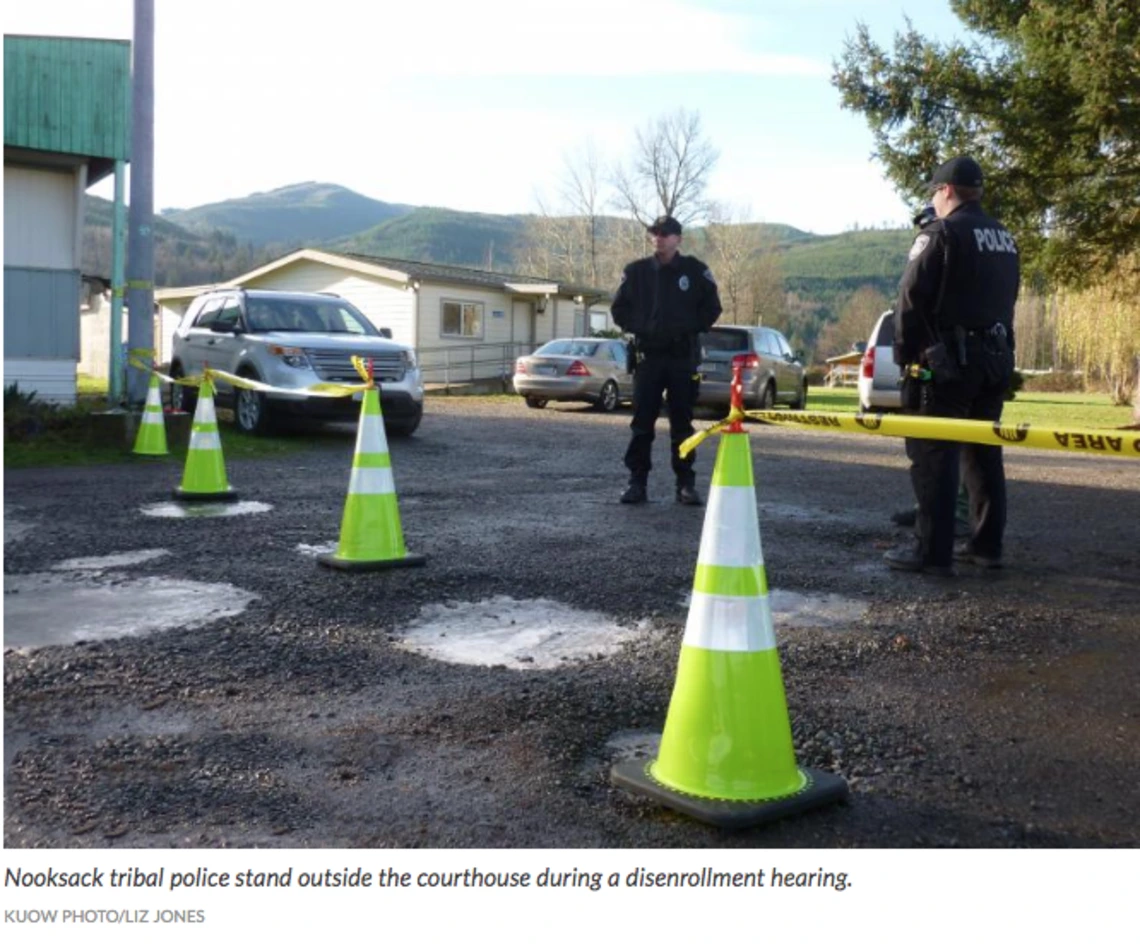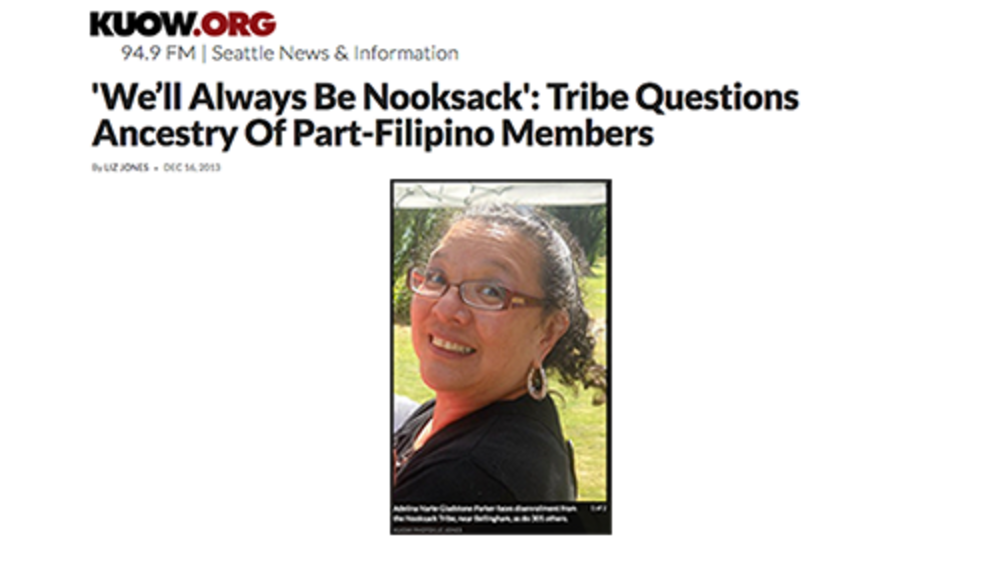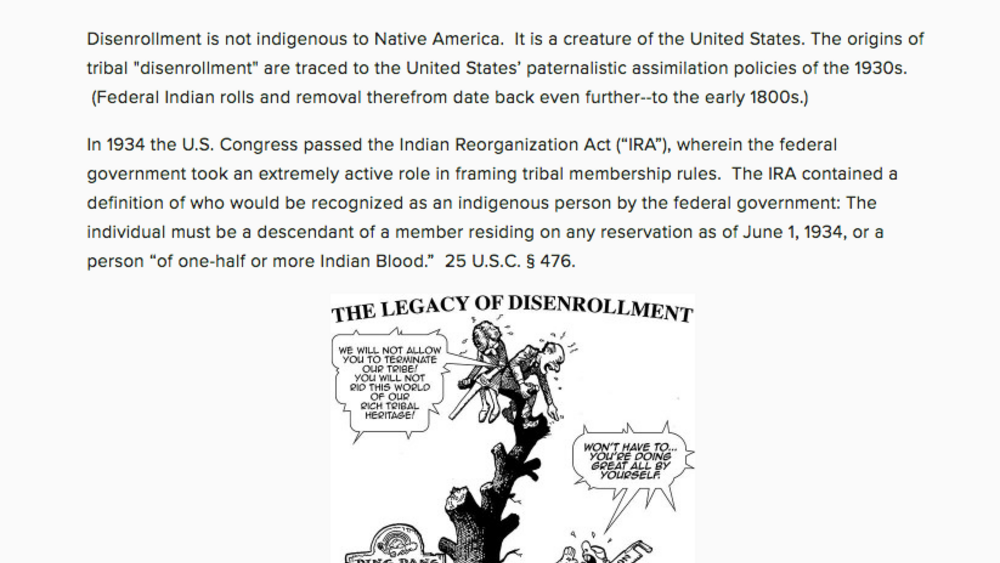In Part Two of the KUOW story documenting the disenrollment of approximately 300 members from the Nooksack Tribe, Liz Jones takes a closer look at the Nooksack's process to disenroll members.
Additional Information
Jones, Liz. "Nooksack Tribe Cites "Missing Ancestor" As Reason To Disenroll 306 Members." KUOW Puget Sound Public Radio. Seattle, Washington. December 17, 2013. Radio Interview. (http://kuow.org/post/nooksack-tribe-cites-missing-ancestor-reason-disenr..., accessed May 30, 2024)




